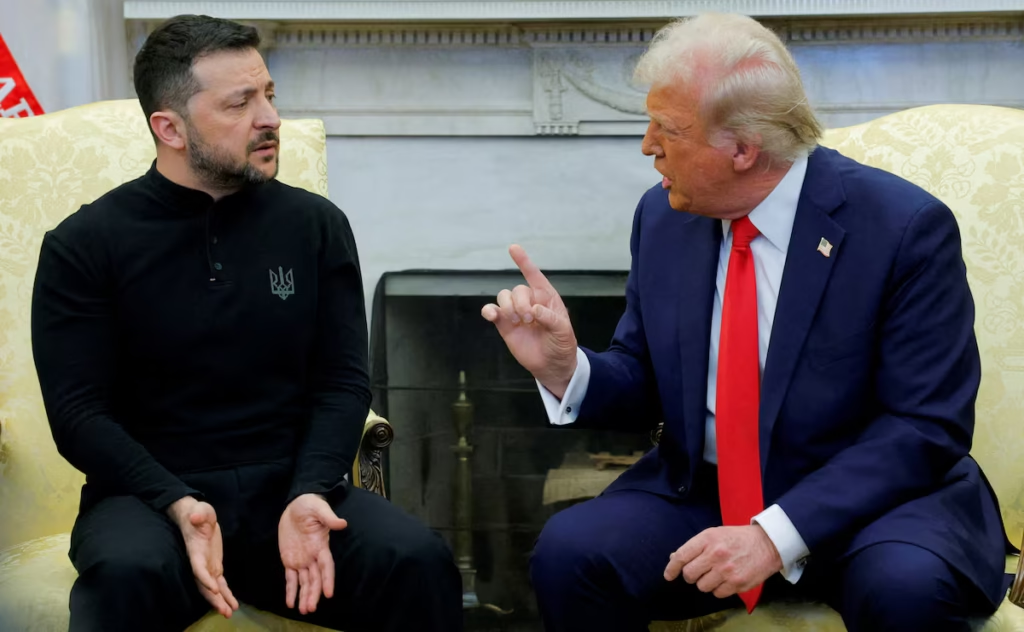European leaders quickly voiced support for Ukrainian President Volodymyr Zelenskiy on Friday after a heated exchange with U.S. President Donald Trump and Vice President JD Vance at the White House exposed deep divisions between Washington and its allies over the war in Ukraine.

Within hours, prime ministers and presidents across Europe took to social media, expressing solidarity with Kyiv following the tense Oval Office meeting. While they refrained from directly criticizing Trump, their statements underscored a widening rift between the U.S. and Europe on handling Russia’s invasion of Ukraine.
French President Emmanuel Macron, who met with Trump earlier this week, emphasized unwavering European support for Ukraine.
“There is an aggressor: Russia. There is a people who are under attack: Ukraine,” Macron wrote on X. “Respect to those who, since the beginning, have been fighting. Because they are fighting for their dignity, their independence, for their children, and for the security of Europe.”
Zelenskiy had arrived in Washington seeking continued U.S. military support and had been expected to finalize an agreement on Ukraine’s mineral resources. However, after the confrontation with Trump, he left the White House without signing the deal.
Trump later accused Zelenskiy of showing disrespect and insisted the Ukrainian leader was “not ready for peace.”
Polish Prime Minister Donald Tusk was among the first to express support, telling Ukraine: “You are not alone.”
European Commission President Ursula von der Leyen and European Council President Antonio Costa issued a joint statement praising Zelenskiy.
“Your dignity honors the bravery of the Ukrainian people,” they wrote. “Be strong, be brave, be fearless. You are never alone. We will continue working with you for a just and lasting peace.”
German Chancellor Olaf Scholz echoed the sentiment, stating, “Nobody wants peace more than the Ukrainians do.”
The public show of European support contrasts sharply with Trump’s more skeptical stance on Ukraine. His administration has pushed for negotiations with Russia and signaled a reduced U.S. role in the conflict.
While European leaders have vowed to continue backing Ukraine, the fallout from Zelenskiy’s White House visit raises concerns over future military aid and security assurances from the U.S., potentially leaving Kyiv more dependent on European allies as it continues to resist Russian advances.



